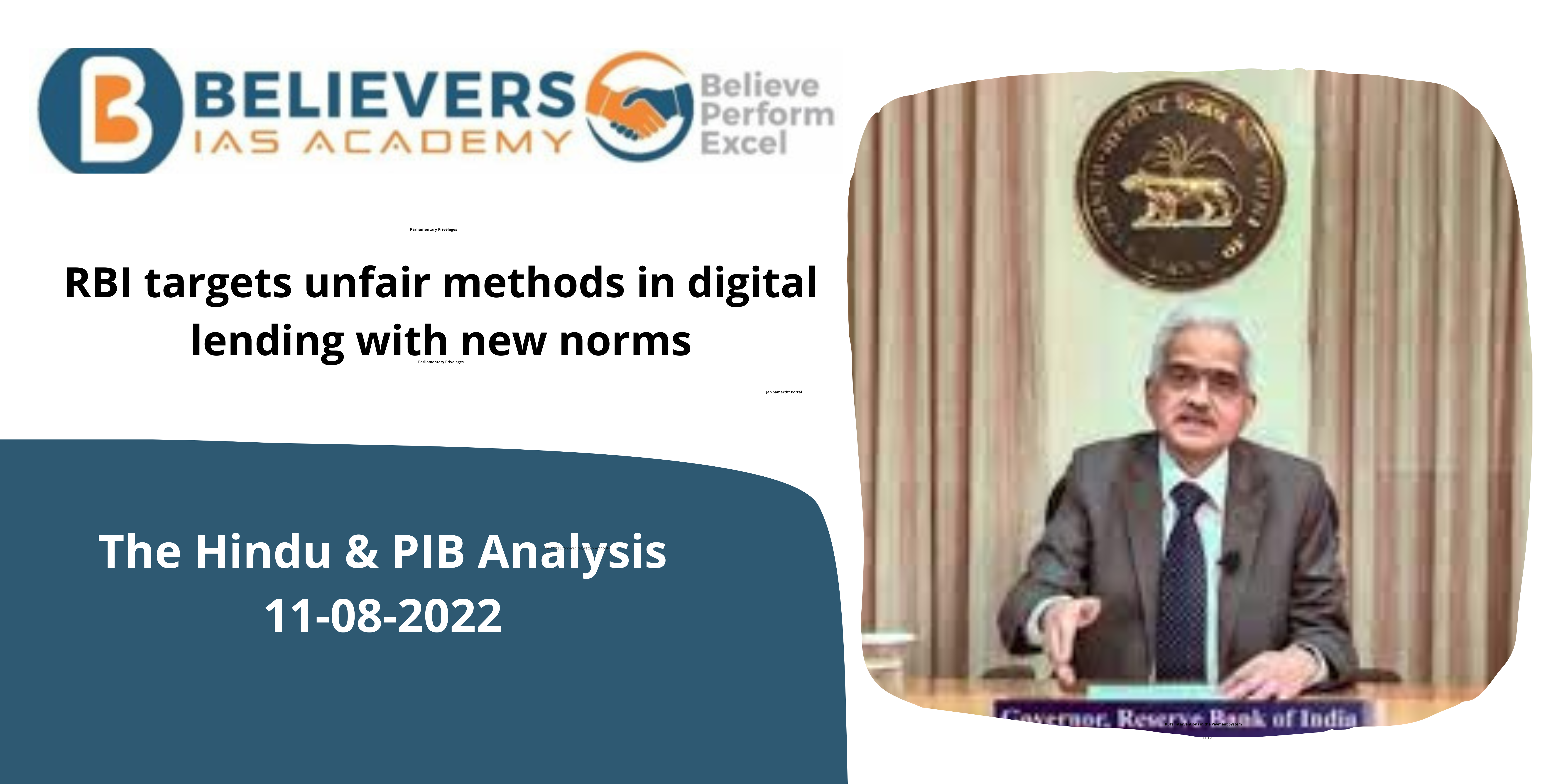RBI targets unfair methods in digital lending with new norms
For Mains
Working Group on Digital Lending (WGDL)
- The RBI constituted a Working Group on ‘digital lending including lending through online platforms and mobile applications (WGDL) on January 13, 2021.
- The thrust of the report has been on enhancing customer protection and making the digital lending ecosystem safe and sound while encouraging innovation.
The following are a gist of the key recommendations:
- Subjecting the Digital Lending Apps to a verification process by a nodal agency to be setup in consultation with stakeholders.
- Setting up of a Self-Regulatory Organisation (SRO) covering the participants in the digital lending ecosystem.
- Separate legislation to prevent illegal digital lending activities.
- Development of certain baseline technology standards and compliance with those standards as a pre-condition for offering digital lending solutions.
- Disbursement of loans directly into the bank accounts of borrowers; disbursement and servicing of loans only through bank accounts of the digital lenders.
- Data collection with the prior and explicit consent of borrowers with verifiable audit trails.
- All data is to be stored in servers located in India.
- Algorithmic features used in digital lending are to be documented to ensure necessary transparency.
- Each digital lender provides a key fact statement in a standardised format including the Annual Percentage Rate.
- Use of unsolicited commercial communications for digital loans to be governed by a Code of Conduct to be put in place by the proposed SRO.
- Maintenance of a ‘negative list’ of Lending Service Providers by the proposed SRO.
- A standardised code of conduct for recovery is to be framed by the proposed SRO in consultation with RBI.
Key Features of the new framework
- All loan disbursals and repayments will need to be executed only between the bank accounts of the borrower and the Regulated Entities (RE) – such as a bank or a non-banking financial company – without any pass-through or pool account of the Lending Service Providers or any third party.
- Any fees, charges, etc., payable to LSPs in the credit intermediation process shall be paid directly by RE and not by the borrower.
- A standardized Key Fact Statement (KFS) must be provided to the borrower before executing the loan contract.
- All-inclusive cost of digital loans in the form of Annual Percentage Rate (APR)6 is required to be disclosed to the borrowers. APR shall also form part of KFS.
- Automatic increase in credit limit without explicit consent of the borrower is prohibited.
- A cooling-off/ look-up period during which the borrowers can exit digital loans by paying the principal and the proportionate APR without any penalty shall be provided as part of the loan contract.
Source: THE HINDU




